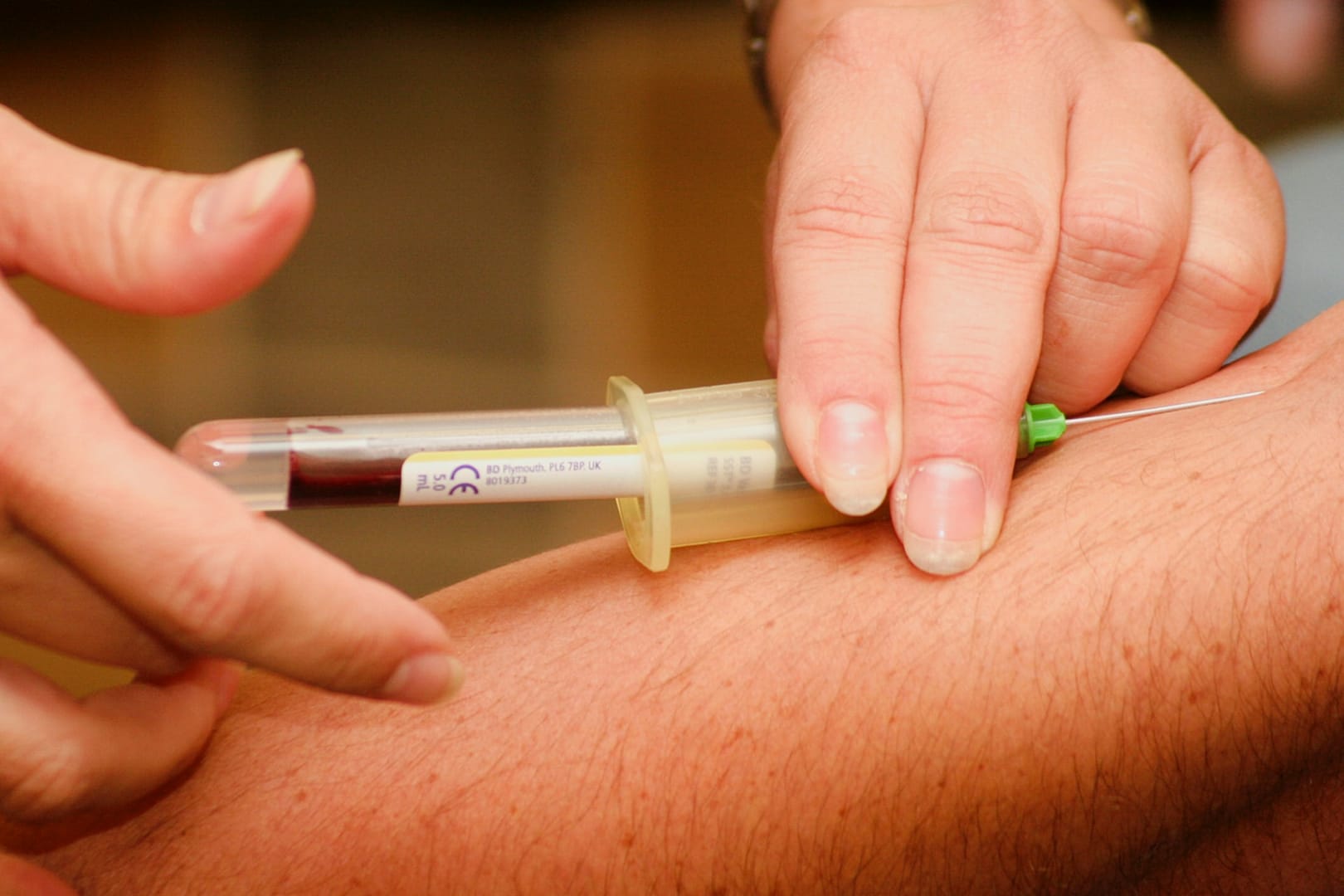Blood transfusions are a lifesaving medical procedure used to replenish a patient’s blood supply or provide specific blood components in various clinical scenarios. However, in the complex landscape of healthcare, there is a potential for errors and negligence that can result in dire consequences. In this article, we will delve into the world of blood transplants and clinical negligence, exploring what negligence means in the context of blood transfusion and the most common causes of incorrect blood transfusions.
Understanding Negligence in Blood Transfusion
Clinical negligence in the context of blood transfusion refers to the failure of healthcare professionals to meet the standard of care expected in the administration of blood products. This deviation from the accepted medical practices can have severe repercussions for patients, as even minor errors in blood transfusions can lead to life-threatening complications. Negligence can occur at various stages of the transfusion process, from blood typing and cross-matching to the actual administration.
When it comes to negligence, it’s essential to understand that it doesn’t always imply malicious intent. More often than not, negligence in healthcare arises from human error, miscommunication, or lapses in following established protocols. Nevertheless, regardless of the intent, the impact on the patient can be devastating.
One common aspect of clinical negligence in blood transfusion is the incorrect identification of the patient, leading to blood being transfused to the wrong recipient. This can result from various errors, such as mislabeling blood samples or mix-ups in patient identification. These incidents can have catastrophic consequences, as the transfused blood may not be compatible with the recipient’s blood type, leading to severe adverse reactions.
Causes of Incorrect Blood Transfusion
In the realm of incorrect blood transfusion, several factors contribute to these potentially fatal mistakes. Here, we’ll explore some of the most common causes:
Human Error
One of the primary causes of incorrect blood transfusion is human error. Healthcare professionals, in the midst of their demanding work, may accidentally mix up patient identification or blood samples. Mislabeling blood bags, neglecting to verify patient identities, or overlooking essential safety checks can all lead to disastrous outcomes.
Communication Breakdown
In a busy hospital environment, effective communication is paramount. When there are breakdowns in communication between different members of the healthcare team, it can result in incorrect blood transfusions. For instance, if the laboratory staff misinterpret a physician’s order, it can lead to the wrong blood type being issued.
Inadequate Staff Training
Insufficient training and education can also contribute to clinical negligence in blood transfusions. Healthcare professionals must have a deep understanding of the blood transfusion process, including how to correctly identify patients, verify blood compatibility, and administer the transfusion safely. Without proper training, mistakes are more likely to occur.
Equipment and Technological Failures
Modern healthcare relies heavily on technology and equipment to ensure accurate blood transfusions. However, like all machinery, these systems are not infallible. Technical malfunctions, software errors, or equipment failures can lead to incorrect blood transfusions if not detected and corrected promptly.
Time Pressure and Fatigue
The healthcare industry operates around the clock, and healthcare professionals often work long, demanding shifts. Fatigue and time pressure can impair judgement and attention to detail, making mistakes more likely. In situations where every second counts, healthcare workers may rush through safety checks and make errors.
Lack of Standardised Protocols
In some cases, clinical negligence in blood transfusion can be linked to the absence of standardised protocols. Hospitals and healthcare facilities may have different procedures in place, leading to confusion among healthcare professionals when they move from one institution to another. Standardising protocols can help reduce the likelihood of mistakes.
The Consequences of Negligence in Blood Transfusion
The consequences of clinical negligence in blood transfusion are severe and can be life-threatening. Incorrect blood transfusions can result in a range of adverse reactions, including:
Acute Hemolytic Reactions: When incompatible blood is transfused, the recipient’s immune system attacks the foreign blood cells, leading to rapid destruction of red blood cells. This can cause kidney failure, shock, and even death.
Febrile Non-Hemolytic Reactions: These reactions can occur due to the transfusion of blood with antibodies that react to the recipient’s white blood cells, causing fever, chills, and discomfort.
Transfusion-Related Acute Lung Injury (TRALI): TRALI is a rare but potentially fatal reaction that can occur after a blood transfusion. It results in severe respiratory distress, and if not managed promptly, it can be life-threatening.
Transfusion-Associated Circulatory Overload (TACO): TACO occurs when a patient receives too much blood too quickly, leading to heart failure and pulmonary edema.
Infections: In rare cases, if the blood products are not properly screened and tested, there is a risk of transmitting infectious agents, such as viruses or bacteria.
In addition to these immediate health risks, patients who experience clinical negligence in blood transfusion may suffer from emotional and psychological trauma. They often have to undergo additional medical procedures to address the complications resulting from the incorrect transfusion, which can be physically and emotionally draining.
Preventing Clinical Negligence in Blood Transfusion
Preventing clinical negligence in blood transfusion is crucial to ensure patient safety and avoid devastating consequences. Healthcare facilities and professionals can take several steps to minimise the risk of incorrect blood transfusions:
Double-Check Patient Identification
Verifying the patient’s identity is a fundamental step in preventing clinical negligence. This includes using two unique patient identifiers, such as the patient’s name and date of birth, and cross-referencing them with the information on the blood products.
Standardised Protocols
Standardising blood transfusion protocols within a healthcare facility can reduce the risk of confusion and errors. Staff should be trained in these standardised procedures and regularly updated on any changes.
Utilise Technology
Leveraging technology can enhance the safety of blood transfusions. Barcoding systems, electronic health records, and automated alerts can help identify and prevent errors.
Education and Training
Proper education and training are essential for healthcare professionals involved in the blood transfusion process. This includes staying updated on the latest safety guidelines and protocols.
Vigilance and Reporting
Encouraging a culture of vigilance and reporting is crucial. Healthcare professionals should be encouraged to speak up if they suspect an error or witness a breach in safety protocols. Reporting and investigating near-misses can help prevent future errors.
Making an Clinical Negligence Claim with National Claims
If you or a loved one has experienced clinical negligence in blood transfusion, it’s crucial to seek legal advice and explore the possibility of making a medical negligence claim. At National Claims, we understand the pain and suffering that can result from clinical negligence, and we are here to help you navigate the claims process.
Our experienced team of solicitors specialises in medical negligence cases, including those related to clinical negligence in blood transfusion. We are dedicated to ensuring that our clients receive the compensation and justice they deserve. Here’s how the process works:
Free Consultation
Our first step is to provide you with a free consultation. During this initial meeting, we will listen to your story and assess the circumstances of your clinical negligence case. We will explain the legal process and what you can expect from our services.
Gathering Evidence
Once you decide to proceed with a claim, we will work with you to gather all the necessary evidence to support your case. This may include medical records, witness statements, and expert opinions.
Legal Representation
Our team of skilled solicitors will provide you with expert legal representation throughout the entire process. We will negotiate on your behalf and, if necessary, pursue legal action to secure the compensation you deserve.
Compensation
If your case is successful, you will receive compensation for the harm and suffering you have endured due to clinical negligence. This may include compensation for medical expenses, loss of earnings, and damages for pain and suffering.

Conclusion
Blood transfusions play a vital role in modern healthcare, but the potential for clinical negligence in the process is a significant concern. The consequences of clinical negligence in blood transfusion can be devastating, leading to a range of adverse reactions and long-term physical and emotional trauma for patients. Legal recourse is available to those who have suffered due to clinical negligence, and making a medical negligence claim with experienced solicitors can help them seek justice and compensation.
Preventing clinical negligence is a shared responsibility among healthcare providers, and it is essential to prioritise safety, standardisation, education, and a culture of vigilance to minimise the risk of incorrect blood transfusions. By doing so, healthcare facilities can ensure that patients receive the lifesaving treatment they need without unnecessary harm or complications.
If you or a loved one has experienced clinical negligence in blood transfusion, National Claims is here to support you. We are dedicated to helping you navigate the legal process, gather evidence, and secure the compensation you deserve. Your well-being and the pursuit of justice are our top priorities.
Start your claim today by contacting us and speaking to one of our helpful claims specialists.
Click below to see why we are one of the most trusted claims management companies in the UK.

We’re proud of our excellent customer reviews
We thrive on delivering exceptional service and ensuring our clients’ satisfaction. Don’t just take our word for it. Check out some of our independent reviews to see what our clients have to say.
Excellent

This firm is excellent, they sorted out my car pay out and injury claim very fast, they always communicate with you all the time.

My accident case was dealt with confidence and with great result of the outcome, especially James kept me informed all the time.

I was very impressed at the way my inquiry was treated. I was listened to attentively and everything I needed to know was explained to me.






